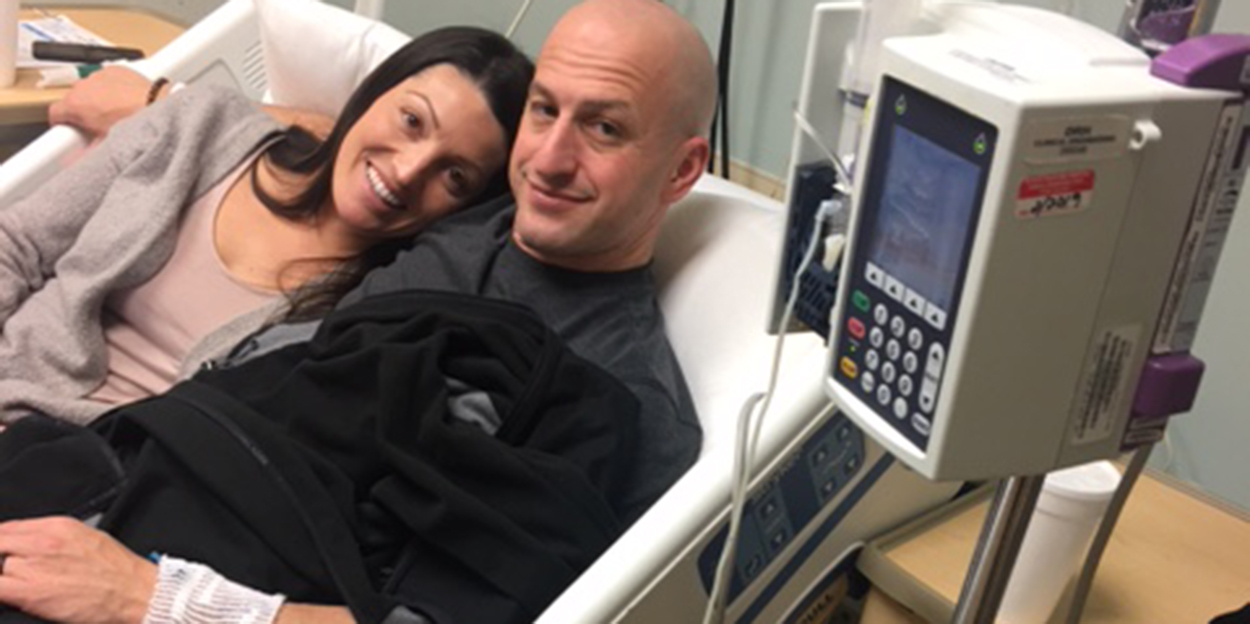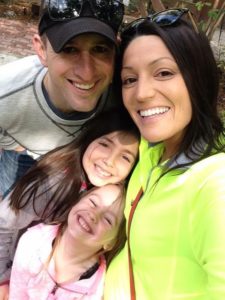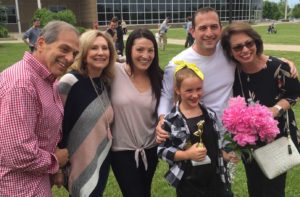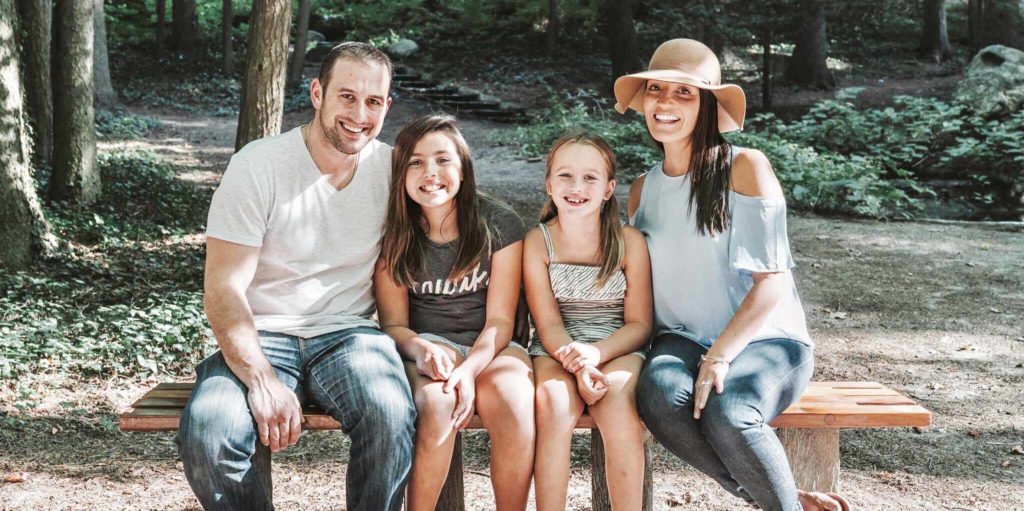
How one family navigated NETs
There are so many unknowns when you live with neuroendocrine tumor (NETs). You can’t predict how you will respond to treatment, and it can be hard to know how neuroendocrine cancer will change the life you imagined for yourself.
See how one family learned about coping with the uncertainty of neuroendocrine cancer.
During her son’s six-year journey with pancreatic neuroendocrine tumor (pNET), Wilma Fellman, a career counselor and life coach, got to practice what she preached about living in the present. Jeff Danuloff was a muscular married professional with two young daughters. He taught martial arts and made a hobby into a career with cars.
“When he was diagnosed at 37, we were 100% sure they had the wrong medical file,” Wilma said. “He was the healthiest person I knew.”
In that instant, their lives changed forever. “Everyone lives with uncertainty,” said Wilma. “We were just much more aware of it.”
Focus on the present
Jeff realized that cancer tests and treatment were a new way of life. But it didn’t overtake his life; it was integrated. He scheduled embolization and chemotherapy to minimize interference with work and family.
He took it one day at a time. “He’d say, ‘Today, I’m OK. Today I am going to work, then to pick up my kids.’ And if he had to take a handful of pills to be able to do that, then he did that,” said Wilma. Jeff’s commute to work was sometimes interrupted with bouts of nausea and vomiting, but he didn’t turn around for home; he went to work.
Find joy

Coping with the uncertainty of a cancer diagnosis means finding ways to take your mind off cancer, to do what you enjoy most, finding meaning and purpose.
“People [with cancer] sometimes drop things they feel passionate about at the time they need it most,” said Wilma, who has coached clients on how to find meaningful interests following retirement. “Do something where you can lose yourself for a few hours.”
Jeff poured himself into his hobbies of teaching martial arts, target practice, and cars, even when it meant heading to the gym at 8 pm after working a full day…or going to work out at 5 am.
For Jeff’s family, joy also came in the form of laughter. They learned to laugh, even cry-laugh. “We would seek out standup comedians on YouTube and HBO,” said Wilma. Staying positive was key for them. If Jeff was having a bad day, he’d reach out to a friend or family member to watch a funny movie with him.
Learn as much as you can
Being informed helps reduce uncertainty. It can also help you feel more in control. Early on, Jeff and his family focused on learning as much as they could about neuroendocrine cancer and its treatment options. As a person who grew up with Attention-Deficit Hyperactivity Disorder (ADHD), Jeff knew he wasn’t the best person to do all the research. So, he divided it up. His family served as his researchers, gathering data, finding reliable sources for accurate information, and then sharing that information.
Establish good communication with your care team
Doctor’s visits can be a challenge. There is never enough time to learn all you need to know. And there can be a lot of unfamiliar terms. That’s why Jeff always took someone with him (or many people…commonly referred to as his “tribe,” for every test and treatment). He came prepared with a list of questions, tough questions, so he knew what to expect. In addition to taking notes on the answers, Jeff and his family members used their cell phones to make audio recordings of the doctors’ answers so they could go back and listen again and again.
Find support

To cope with the emotional challenges of living with neuroendocrine tumors, people need someone to talk to, someone they trust, someone that will listen without judging.
That can take many different forms. Some people rely on support groups, mental health counselors, or faith leaders.
Jeff turned to his devoted wife Jasmine, friends, and family for support. He was particularly adept at knowing who to call when, whether he needed someone to listen to him vent or someone to tell him to snap out of it.
Stay positive
It is common to have days when you’re down. Let yourself grieve in whatever way feels natural. But find tools to bring you back from that place.
“Jeff sometimes needed a couple of hours of wallowing and feeling sorry for himself because of all of the needles, poking, and jumping into bushes to throw up. He’d ask the normal question… ‘Why is this happening to me?’” said Wilma.
The Danuloff/Fellman family, however, doesn’t believe in good days and bad days. Instead, Jeff’s aunt coined the phrase “good minutes and bad minutes.”
“You don’t write off the whole day because you feel crappy for a few minutes. That’s an overgeneralization,” said Wilma.
This philosophical perspective helped Jeff reframe and move beyond the moments when cancer seemed too much to bear. He used problem-solving to get beyond “bad minutes.”
“Whatever the problem was in that minute, we would try to solve it to ease the situation,” said Wilma. Jeff’s care team helped ease pain, symptoms, and side effects. His doctors helped him find what he needed to get through it.
Celebrate life
Jeff’s family celebrated his cancerversary (anniversary of his cancer diagnosis) every year. This allowed them to celebrate what was good and be thankful for another year together.
When Jeff passed in May of 2019, 600 people celebrated the life he led… a life filled with intention, passion, and purpose, despite illness and obstacles that tried to slow him down. His energy and positivity were universally inspirational.
To honor Jeff, Jeff’s family has established a tribute fund in his memory to raise $10,000 for neuroendocrine tumor research.

